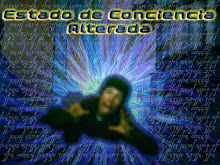
Questions/ DefinitionsRead the following interview.
Linford Christie
Did you always want to be a professional athlete?
I didn't know I was going to be one until quite late on. I only became a professional when I was 25, which is quite unusual. If I'd had known before, I'd have started training earlier. My dad wanted me to be an electrician, but like everyone else I wanted to be a footballer.
1 How do you prepare for an important race?
You certainly have to be in good physical condition. If you train hard, you can be a world-class distance runner, but you have to be born a champion sprinter. I run 105 metres. Most people run 95 metres and then slow down, but that is how you lose a race. My coach always taught me to keep on running through the finish line.
2 How do nerves affect you?
They're something a good sprinter has to learn to live with. Sometimes they start a week before a race: you think about it and your heart goes faster. After a while, you learn to control them and just get a little edgy a couple of hours before the race.
3 Do you run faster if you're angry?
Sprinting is an aggressive sport, but the aggression has to be controlled. Too much anger and you become tense, and that's the worst thing for a runner. Everyone has their own way of preparing themselves mentally for a race, but you can't afford to get too worked up or you'll lose.
4 Has technology made the sport too serious?
I'm not into it myself because you can become too addicted. But it does make it easier to get information. You can consult different web pages to find out about legal herbs and vitamins which will help you run better, or which competitions your colleagues are taking part in and what times they do. But I don't use it as much as some people.
5 Has the Internet changed the nature of sport?
Yes, to a certain extent it has, and I think that sometimes we rely on it too much. I was disqualified for three false starts in the Atlanta Olympics, thanks to a machine which said I'd left the starting blocks too early. Machines have dehumanised sport and taken some of the fun out of it, but having said that, I do think they are very useful.
6 What's your most useful piece of equipment?
Without a doubt it's my start machine, a kind of electronic stopwatch, which I got in 1990 for $1500. It was pricey even then but it was vital for my running career. In the first twelve months I had it, I improved my time over 60m from 6.8 seconds to 6.6. It may not sound very much, but in athletics it can make the difference between a winner and a runner-up.
7 What do you do now that you're retired?
I still train and run a little, but I've been doing other things as well: presenting TV sports programmes, advertising, modelling, as well as running my company Nuff Respect, which helps to market and manage sports people. I always think like a competitor, because it's the only way I can succeed. I have to be on the go all the time; I can't just sit doing nothing.
Part A: Match the interview's questions with Linford Christie's answers.
A. Has the Internet changed the nature of sport?
B. What makes a winner?
C. What do you do now that you're retired?
D. What's your most useful piece of equipment?
E. Has technology made the sport too serious?
F. How do nerves affect you?
G. Do you run faster if you're angry?
H. How do you prepare for an important race?
I. Did you always want to be a professional athlete?
Part B: Choose the best definition for the informal expressions, in bold, in the text.
1. Edgy
a. faster
b. tired
c. nervous
d. worried
2. to get too worked up
a. to work too hard
b. to do too many things at the same time
c. to get too angry
d. to earn too much money
3. I'm not into it myself
a. I haven't got it.
b. I'm not interested in it.
c. I never use it.
d. I don't worry about it.
4. It was pricey
a. I won it in a competition.
b. it was very useful.
c. I bought it second-hand.
d. it cost a lot of money.
5. to be on the go
a. to be busy
b. to compete in races
c. to leave
d. to be successful

No hay comentarios:
Publicar un comentario